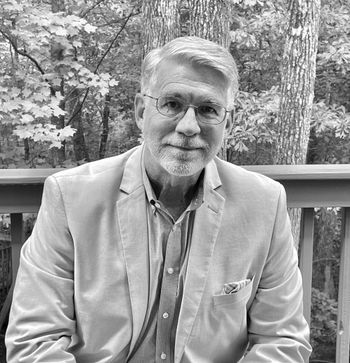PROF. JENKINS: Plagiarism is still wrong
What does it mean for students when professors and administrators are allowed to plagiarize with impunity? As a practical matter, it means students at those institutions are free to do so, too.
Rob Jenkins is a Higher Education Fellow with Campus Reform and a tenured associate professor of English at Georgia State University - Perimeter College. In a career spanning more than three decades at five different institutions, he has served as a head men’s basketball coach, an athletic director, a department chair, and an academic dean, as well as a faculty member. Jenkins’ opinions are his own and do not represent those of his employer.
In recent months, several high-profile academics have been publicly outed as plagiarists, thanks to warriors like Chris Rufo of the Manhattan Institute, Luke Rosniak of the Daily Wire, Chris Brunet at the “Karlstack” Substack page, and of course our own intrepid Campus Reform staff.
The culprits thus unmasked include Claudine Gay, the former president of Harvard University; Harvard’s Chief Diversity and Inclusion Officer, Sherri A. Charleston; and, more recently, the president of the University of Maryland, Darryll Pines.
Perhaps the most famous of the miscreants, however, is Robin DiAngelo, a professor at the University of Washington (UW) best-known for her “seminal” book on “anti-racism,” White Fragility. (Actually, DiAngelo is probably more recognizable these days as the unwitting co-star of Matt Walsh’s new docu-comedy, “Am I Racist,” now playing at a theater near you.
An anonymous complaint filed last month with the university, where DiAngelo also obtained her Ph.D., alleges that she plagiarized several minority scholars in her dissertation, “Whiteness in Racial Dialogue: A Discourse Analysis.” A side-by-side comparison by the Washington Free Beacon shows that she did in fact lift multiple long passages from other authors without proper attribution or citation.
[RELATED: PROF. JENKINS: Higher education and the crisis of competence]
In what should be by now a predictable response, UW dismissed the complaint as “politically motivated.” According to the New York Times, “The university…said that [the] similarities in language did not constitute plagiarism, because research norms allow for the limited reuse of language to describe previous research or background information.”
This dubious assertion recalls similar attempts by Harvard to play down Gay’s academic misconduct. Remember how they tried to characterize her overt and obvious unattributed borrowing from other authors—aka, plagiarism—as mere “duplicative language”?
The real problem with such feeble excuses is not just that they are cowardly and fraudulent, not to mention genuinely politically motivated. It’s that they undermine the academic integrity fundamental to serious scholarship—the same integrity universities rightly demand from their students.
UW’s own Student Code of Conduct defines plagiarism as “the submission or presentation of someone else’s words, composition, research, or expressed ideas, whether published or unpublished, without attribution….Plagiarism includes, but is not limited to…the use, by paraphrase or direct quotation, of the published or unpublished work of another person without full and clear acknowledgment.”
Harvard’s student handbook says much the same thing. So does virtually every college handbook in the country, for one simple reason: That’s what plagiarism is, what it has always been understood to mean. And yet DiAngelo and Gay and the others did exactly what those codes prohibit.
[RELATED: PROF JENKINS: Why you can’t use AI in my class]
What does it mean for students when professors and administrators are allowed to plagiarize with impunity? As a practical matter, it means students at those institutions are free to do so, too. Imagine the lawsuits if students at UW or Harvard were expelled or otherwise disciplined for engaging in the same conduct as DiAngelo and Gay.
In short, having given their “star scholars” a pass, those institutions no longer have any moral authority to enforce academic standards. And that will inevitably filter down to every campus in the country. Harvard and company have not just redefined plagiarism; they’ve annihilated the concept.
And yet…
Plagiarism is still morally and ethically wrong, regardless of who does it or what some university administrators say about it to cover their own rear ends, advance their political agenda, and protect their investments.
Plagiarism is wrong because it is dishonest. It is stealing. It involves taking other people’s intellectual property—ideas and words they sweated to produce—and representing it, falsely, as your own.
Plagiarism is wrong, too, because it deprives the scholar of the personal and intellectual growth that comes from struggling over a piece of writing. You might be able to plagiarize that sociology paper, but one day, you won’t be able to plagiarize an annual report for your boss. Why not learn to do it now?
If you consider yourself a conservative, plagiarism should be anathema to you. It flies in the face of everything you claim to stand for. It might be “easier” to get through school—or get a job as the president of Harvard—by plagiarizing, but a life without integrity is hardly worth living. You might as well be a leftist.
Editorials and op-eds reflect the opinion of the authors and not necessarily that of Campus Reform or the Leadership Institute.

